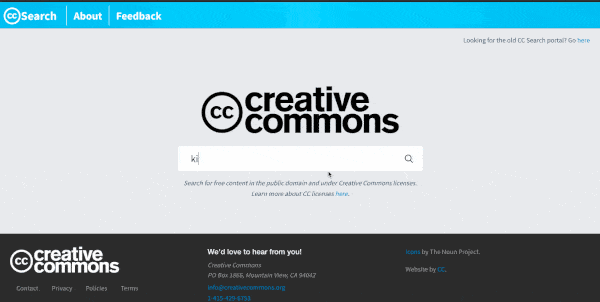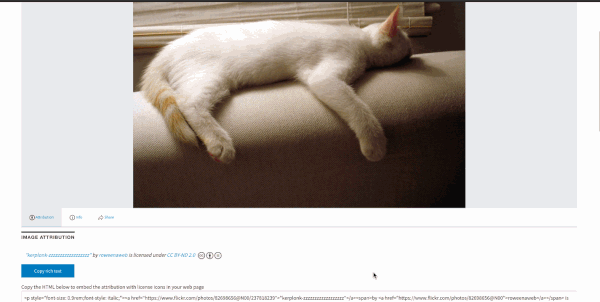Nonprofit organization Creative Commons is today publicly launching its search engine after more than two years of beta testing. The new service is designed to offer an easy way to search the commons’ archive of free content available in the public domain, which is available to use under Creative Commons licenses. At launch, this includes more than 300 million images indexed from multiple collections, the organization says.
The service engine itself has also been updated with a major redesign and faster, more relevant search.
While the larger photo search engines, including Google and Flickr, have for a long time offered tools that let you filter for CC-licensed images, the Creative Commons website also sees a good bit of traffic itself. The organization in February 2017 said it was seeing nearly 60,000 users search its site per month, which is why it wanted to create an improved search experience.
“There is no ‘front door’ to the commons, and the tools people need to curate, share, and remix works aren’t yet available,” said Ryan Merkley, Creative Commons CEO, when announcing the plans for the new CC search engine. “We want to make the commons more usable, and this is our next step in that direction,” he explained.

When the beta version of the search engine launched, there were some 9.5 million images available, including those from Flickr, 500px, Rijksmuseum, the New York Public Library and the Metropolitan Museum of Art, which served as its initial sources.
Today, CC Search has more than 300 million images pulled from 19 collections, including also the Cleveland Museum of Art, Behance, DeviantArt and even a set of CC0 3D designs from Thingiverse, among others. The organization says the image catalog will continue to grow, with prioritization given to significant collections like Europeana and Wikimedia Commons.
With today’s launch, the engine itself has also had an update. It now features a cleaner home page, improvements to its navigation and filters, design alignment with creativecommons.org, streamlined attribution options and clearer channels for providing the organization with feedback. Under the hood, the engine has seen improvements to things like loading times and search-phrase relevance, and added analytics to help the team understand how it’s being used, the organization said.

In addition, the engine is now directly linked to the Creative Commons homepage, where it replaces the old search portal. (The latter remains online, however, at oldsearch.creativecommons.org.)
This quarter, Creative Commons plans to add advanced filters to the homepage, the ability to browse collections without entering search terms and improvements to accessibility and the user experience on mobile devices. Some of this work will be done by Google Summer of Code students starting next month, it notes.
Longer-term, Creative Commons plans to grow the engine to index more than just photos. Later this year, it plans to begin indexing other CC-licensed works, like open textbooks and audio. Eventually, it wants this new portal to provide access to all 1.4 billion works in the commons — but that could take time, given that its work relies on a community of volunteer developers who work alongside the engineering team at Creative Commons.
On that front, the organization is open to community contribution and makes all its code — including the code behind CC Search — open source (e.g. CC Search, CC Catalog API, CC Catalog). It also runs the #cc-usability channel on CC Slack where you can keep up with the new releases.
The public launch of CC Search follows other recent, good news for a sizable Creative Commons collection. In March, Flickr announced that all the Creative Commons images hosted on its site would remain protected — including those uploaded in the past, and any added in the future.
There had been some concern over the future of Flickr’s CC repository following the company’s move to a new business model which put an end to Flickr’s free terabyte of storage in favor of a subscription-based service. Had it decided to delete the CC-licensed photos it hosted, millions of photos would have been lost. Now those photos will continue to be available, and discoverable, through the new CC Search.
The full 2019 CC Search roadmap is available here.
Comments
Post a Comment